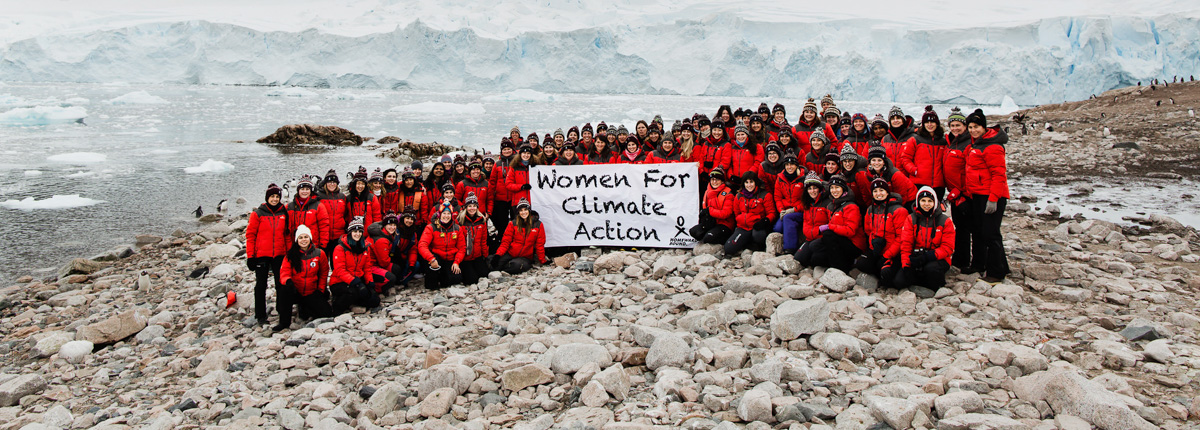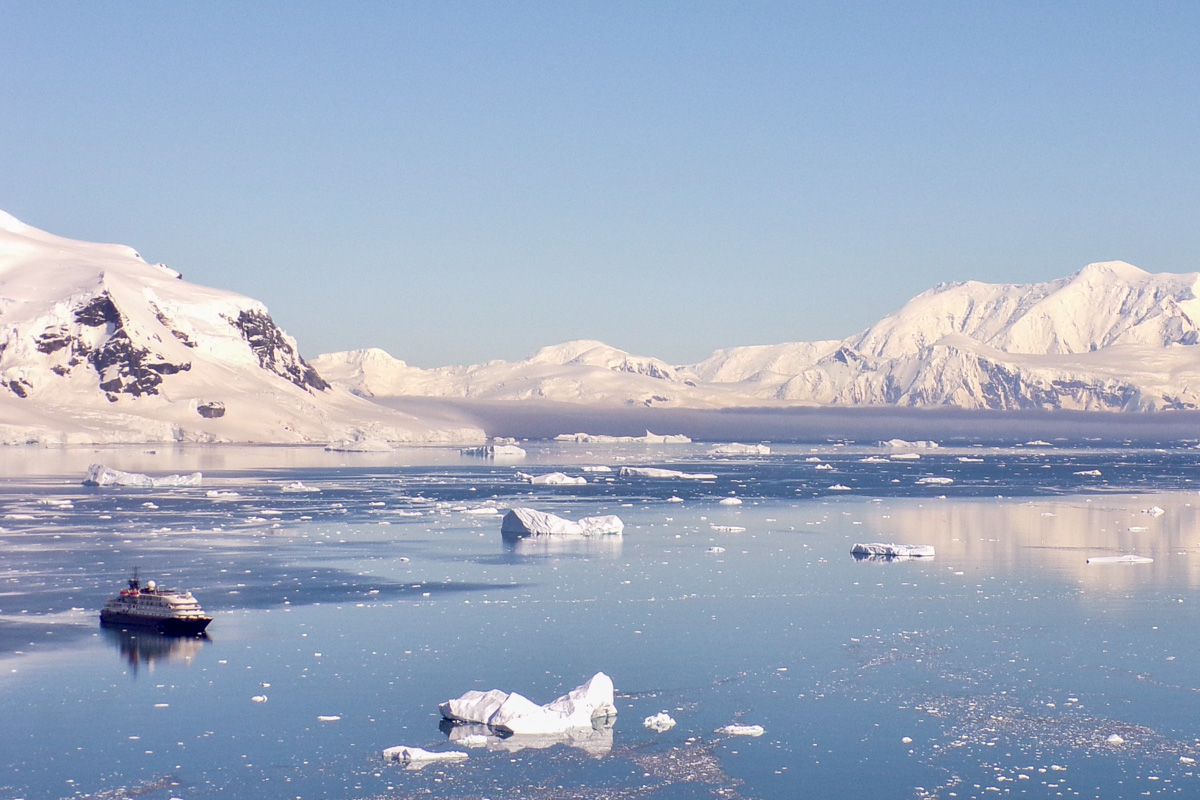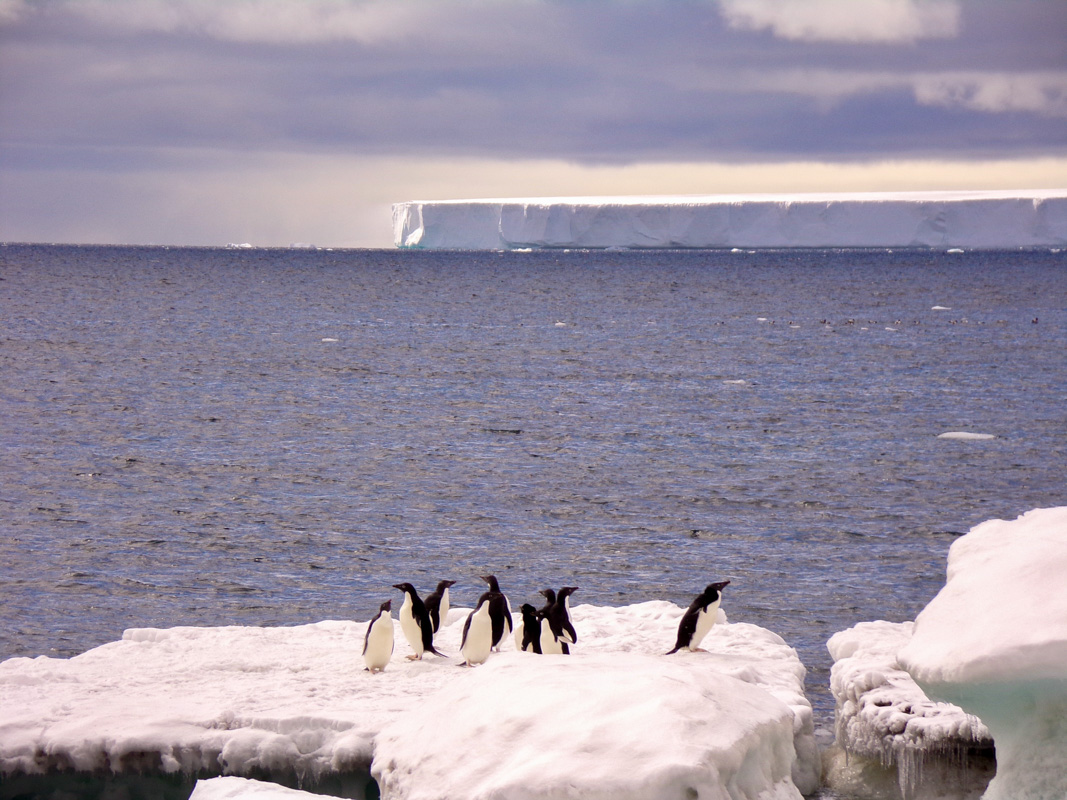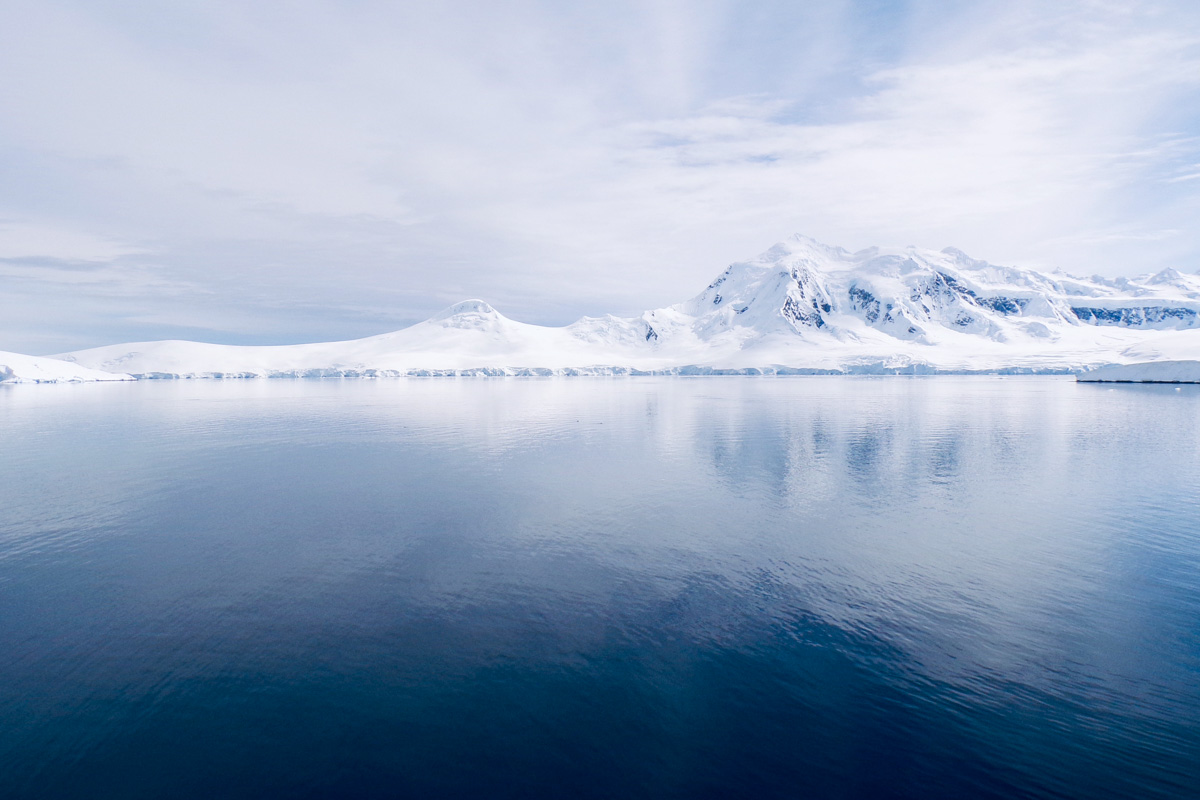
Women and Climate Leadership
Just back from a trip to Antarctica, a Winrock scientist speaks out
Dr. Blanca Bernal, featured photo by Oli Sansom
On U.N.’s International Day of Women and Girls in Science, February 11, Winrock salutes all the girls and women our projects educate and empower — as well as the female scientists on our staff, who use their talents to help societies thrive.
Last year I was selected to join the fourth cohort of Homeward Bound, a global leadership program that is choosing 100 women a year for 10 years to equip them with increased leadership capabilities, tools and a skillset to influence policy and decision-making that shapes our planet.
Homeward Bound drives home the point that the crisis of climate change is also a crisis of leadership, with decision-makers prioritizing immediate and small-scale profit over collaborative medium- and long-term benefits and with a shortsighted vision that fails to see sustainability as an opportunity for growth.

Homeward Bound asks the question, what if more women in leadership roles can help abate both the leadership and climate change crisis? This thought is supported by three general facts that remain true around the world:
- That women’s contributions as decision-makers, stakeholders and experts are often overlooked across professional fields because of socioeconomic barriers and biases, both conscious and unconscious. These barriers and biases result in a 30-percent ratio of women to men in positions of leadership and responsibility ;
- That women are just as capable of leading as men are, and by removing barriers and giving women toolsets, support, equal promotion opportunities, and a growing professional network, they will also thrive in their professional fields;
- That women’s leadership styles tend to have a legacy and long-term mindset that favors inclusive and collaborative approaches. Studies have shown that women prioritize environmental considerations in their purchasing and lifestyle choices more than men do. In fact, countries with high female parliamentary representation have been more prone to ratify environmental treaties and pass more environmental legislation than those dominated by men.

Environment is indeed a field that attracts women, and yet the principal investigators, senior professors, or program directors around me have rarely been women. One of the many consequences of losing women as one looks up the career ladder is the loss of valuable human talent and creative potential.
What would scientific progress look like if we had more women at higher levels, and if women currently advancing in science had more visibility and support? Visibility matters — and having fewer women than men in STEM (science, technology, engineering and math) makes it harder to inspire girls to become scientists. The same is true in non-scientific fields. When women are not seen as progressing in their careers because of reasons unrelated to merit or performance, this discourages other women from making similar career choices and contributes to an erroneous perception of women’s performance ability. A program like Homeward Bound empowers women to help correct these deficiencies.
Part of the attraction of this program is that it gives you the once-in-a-lifetime opportunity to go to Antarctica for three weeks with 99 astonishing women who are working every day to make this world a better place. And it gives you the chance to learn from faculty the caliber of Christiana Figueres (who led the Conference of the Party Paris Climate Change Agreement in 2015 and also served on the Winrock Board), Fabian Dattner (founder of Homeward Bound) or Musimbi Kanyoro (president of the Global Fund for Women). If you were not hungry for a more sustainable and equal world before, you will be after experiencing both the company and the place during those three weeks.
Antarctica gives you an overview effect that must be similar to what astronauts feel when they look at the Earth from space — beautiful, powerful and fragile — and the capacity and drive of the women that join the program is uplifting evidence of how powerful untapped potential can be.

